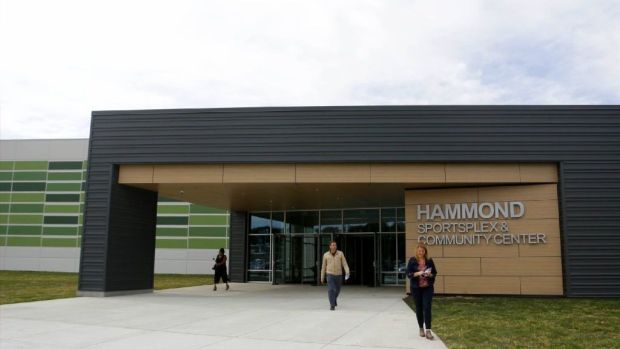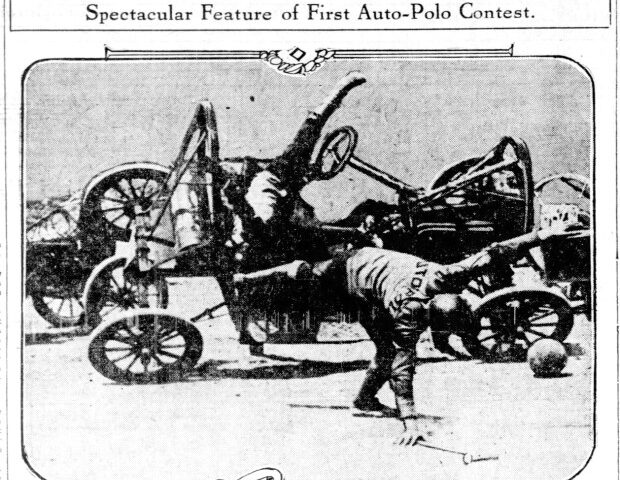The Hammond City Council will consider a 1% food and beverage tax to fund the expansion of the Hammond Sportsplex and the construction of a downtown South Shore train station at its Monday meeting.
The Indiana General Assembly passed a bill this year that would allow Hammond to place a 1% tax on prepared food and beverages, said Hammond Mayor Tom McDermott. The tax would be added on to the state’s 7% sales tax, he said.
“The council has permission to debate this, to see if we can create an ordinance out of it. Now, the ball is passed to the Hammond council,” McDermott said.
Mayor Thomas McDermott Jr. proposed a 1% food and beverage tax, which the City Council will discuss at its Monday meeting, that would benefit the expansion of the Hammond Sportsplex and the South Shore’s West Lake Corridor extension. (Suzanne Tennant/Post-Tribune)
The state has directed that the funds collected through the tax can go toward three projects: expansion of the Hammond Sportsplex, construction of a downtown South Shore train station on the West Lake Corridor and expanding the pavilion at Wolf Lake, he said.
McDermott said he felt the money would be best spent on the Sportsplex and train station.
“We couldn’t spend for anything outside of those three projects with this money,” McDermott said. “The first two projects are going to eat up all the money.”
It is estimated that the tax will generate $2 million a year for 20 years, McDermott said. On a $50 restaurant bill the potential city food and beverage tax would be 50 cents, he said.
The sales tax would only apply to prepared food and beverages not groceries, McDermott emphasized. While no one likes a tax increase, McDermott said residents can avoid the tax.
“This is a tax that’s unlike almost any other tax that you could literally avoid it easily by just not going out,” McDermott said. “If you don’t go to restaurants, if you don’t go to fast food places you’re not going to pay the tax.”
The Sportsplex is a major tourist attraction in Hammond, McDermott said, with many people from out of town coming to play in tournaments. In 2023, the Sportsplex generated $1.2 million in revenue, McDermott said, which includes concession sales, bar sales and tournament entry fees.
The train station will help with further redevelopment of the downtown area, McDermott said.
Councilman William Emerson, 4th District, said he will support the tax because it will go toward redeveloping the city.
“I’m in favor of it because to me 1% is not that much,” Emerson said.
Councilman Dave Woerpel, 5th District, said he will support the tax because as the city redevelops it will being more businesses and people to the area.
“To me it just makes a lot of sense because it will bring economic development,” Woerpel said.
El Taco Real owner and longtime Hammond resident Ray Garcia has mixed feelings about the tax. On one hand, the ordinance appears on its face to be socially beneficial, which Garcia appreciates.
Only one of the projects, however, appeals to him.
“The West Corridor project has a much broader appeal, with people coming in from Chicago coming into downtown Hammond. That’s a worthy investment for sure,” he said. “The Sportsplex, however, appeals to a smaller, more specific population that, quite frankly, probably doesn’t branch out further than the places in its immediate area. How does that help us?”
Garcia and Matt Przewoznik, who owns Flat Rock Tap on Calumet Avenue, said restaurants and bars have struggled to get back to normal post-COVID. Only now has El Taco Real completely recovered from the pandemic, Garcia said, while Przewoznik said he’s still working on it. A tax, regardless of how small, won’t exactly help him attract any customers, Przewoznik said.
“I’m not a fan of many taxes, because it’s the little guys who get pummeled again, and Hammond is full of mom-and-pops,” he said. “How does this work with the casinos, who give out free drinks? And what happens if the County passes (a food and beverage tax)? Is it just going to be on top of Hammond’s? And what about the festivals — are they going to be taxed?”
Garcia agreed.
“Restaurants are getting taxed unilaterally again,” he said. “I’m mostly for it, as funding for these initiatives is hard to find, but it would’ve been nice for (the city administration) to ask us what we think.”
Garcia also wondered how the money will be administered and who will be doing it, because that would be problematic for him.
“Look at the School City of Hammond — they got the referendum, but no offense, look what happened. Is this going to be the usual suspects? Bottom line for me is oversight,” he said.
Hammond voters approved a 2017 operating referendum before they roundly rejected a renewal of the referendum in November 2023. In the wake of that funding loss, the district has closed 3 schools and eliminated more than 170 jobs along with other cost-cutting moves.
For Przewoznik, there appear to be better ways to make money. He works in Cook County and sees billboards advertising video gaming in bars all the time.
“The State of Illinois is bringing in $250 million to $300 million a year on video gaming. Wouldn’t that be a better way to make money than a 1% tax? That’s potentially $150,000 per bar per year that would go back into the community, and no one’s forcing the people to use the machines,” he said.
“It’s 1% today, but is it going to be 4%, 5% down the road? I’ve never heard of anyone getting rid of a tax.”
Michelle L. Quinn is a freelance reporter for the Post-Tribune.





